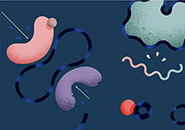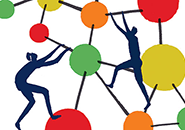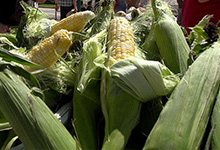Let’s be honest; dieting is rough. Hunger can deflate a dieter’s spirit and render friends and co-workers unbearable.
Still, hunger is evolutionarily beneficial, as it signals when our bodies need food. Eating activates reward systems in the brain, but scientists have puzzled for decades over why our mood turns bleak when hunger hits.
Scott Sternson, a group leader at Janelia Research Campus, decided to tackle that question in mice. His team started by looking at the brain’s agouti-related peptide (AGRP) neurons, which, when activated in mice optogenetically, elicit voracious eating.
The researchers presented well-fed mice with two flavored gels; the mice showed no preference for one over the other, and neither had nutritional value. Whenever the mice nibbled at one of the gels, scientists activated their AGRP neurons. Surprisingly, the mice began avoiding that gel.
To further test the link, Sternson’s team activated the AGRP neurons every time the mice went to a certain part of their cage. Sure enough, the mice began avoiding that area.
When the scientists peered into the rodents’ brains, they observed that AGRP neurons are indeed active when the animals are hungry. But the neurons showed low activity during eating. In fact, they’re inhibited as soon as food is sensed.
Thus, it appears that AGRP neurons encourage us to pursue food to avoid a state of physiological need for nutrients. Based on his team’s findings, published April 27, 2015, in Nature, Sternson thinks the unpleasant feeling associated with AGRP activation prompts the drive to find food. This is important evolutionarily, as animals often face risks in seeking food. If hunger is unpleasant, animals are more likely to take that risk, ensuring their survival.
While that works for animals, it’s tough on dieters. “When people try a weight-loss diet and find it to be unpleasant … it’s pretty likely that the elevated activity of the AGRP neurons has something to do with it,” Sternson says.
With that in mind, scientists are looking at how they might interfere with AGRP neuron activity. If the neurons behave similarly in humans, help in dropping those extra pounds may not be far off.










